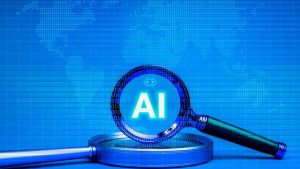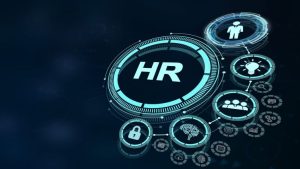AI and Wellbeing: 7 Ways To Improve Employee Wellness and Performance
 Publié le 12 December 2023
Publié le 12 December 2023
There are 7 ways to improve employee wellness and performance utilizing the latest developments in AI and wellbeing.
Are you feeling overwhelmed by workplace stress? You’re not alone. Zippia reports that each day nearly one million Americans take stress-related leave.
With the global economy losing $1 trillion yearly to depression and anxiety as estimated by the World Health Organization, the use of artificial intelligence (AI) and machine learning in employee wellness is more vital than ever.
This blog post explores how AI in the workplace is not just a tech trend but a crucial tool for improving employees’ mental health and overall performance, benefiting both individuals and companies alike.
Key Takeaways
- Personalized Wellness Programs: AI customizes wellness initiatives for each individual, enhancing employee wellness.
- Burnout Prevention and Stress Management: AI tools detect the signs of stress and burnout early, promoting psychological health.
- Workload Management: AI assists in managing workloads improving employee well-being and productivity.
- Personalized Growth Management: AI in performance management fosters employee growth and diverse skill development.
- Real-time Mental Health Support: AI-powered apps offer immediate mental health support, essential for employee wellness.
- Wearable Technology: Wearables provide real-time health insights, supporting employee wellness.
- Data Analytics: AI-driven data analysis informs wellness strategies, enhancing overall employee health.
7 Ways To Improve Employee Wellness and Performance
1. Personalized Wellness Programs
When it comes to employee wellness programs, participation is often a significant hurdle. As highlighted by Terryberry, a pioneer in employee engagement solutions, the challenge lies in crafting well-being solutions that resonate universally with employees.
AI can transform the landscape of employee wellness programs by providing personalized wellness recommendations tailored to each employee’s unique needs and abilities. By analyzing health data, activity levels, and work habits, AI crafts wellness initiatives that resonate with each employee.
AI’s role extends to addressing potential health risks and personal preferences in fitness and mental health, making employee wellness programs more effective and engaging.
This approach moves away from a one-size-fits-all strategy in order to improve employee wellness. Whether through yoga, tailored diets, or physical activities, AI-driven customization promotes active engagement and personal ownership of health and well-being. By leveraging personal goals and motivators, these AI-enhanced employee wellness programs become empowering tools for a healthier, more engaged workforce.
2. Burnout prevention and stress management
The link between work stress and mental health issues is stark, with a Zippia study finding 83% of U.S. workers grappling with work-related stress.
In addressing these mental health problems, AI and employee well-being intertwine effectively. A 2023 Frontiers in Psychiatry research highlights how artificial intelligence enhances the usage of Employee Assistance Programs (EAP), focusing on emotional health and stress management.
Similarly, the International Journal of Human Resource Studies notes the benefits of AI-powered stress management tools in reducing stress and boosting job satisfaction.
AI’s role in mitigating workplace stress is multifaceted. It automates repetitive tasks and provides crucial insights for maintaining work-life balance, raising concerns about existing work practices, and offering solutions.
AI can identify early signs of burnout by analyzing behavior patterns and enabling timely interventions. Artificial intelligence helps HR and managers take a proactive approach to recognizing and fixing the causes of workplace stress in order to improve employee wellness. These steps are critical to improving employee job satisfaction and overall well-being.
3. Workload Management
A survey by the American Psychological Association found that more people are reporting heavy workloads impacting their stress levels. The percentage of individuals saying it has had a significant negative impact rose from 44% in 2019 to 50% in 2021.
Effective time management is crucial in maintaining employee well-being and a productive workforce. AI scheduling assistants like Motion or Clockwise play a vital role in streamlining workload management. These AI tools automate routine tasks, smartly schedule meetings, and balance workload, reducing employee fatigue and boosting overall well-being and productivity.
Machine learning algorithms enhance performance management by organizing tasks and providing personalized recommendations. These algorithms continuously learn and evolve to offer more precise suggestions for task prioritization and deadline management.
As these machine learning algorithms progress, they will increasingly predict and mitigate issues like employee burnout, offering insights for better work task distribution. This approach promotes employee wellness and cements a company culture that values balance and efficiency.
4. Personalized Growth Management
The intersection of AI tools and performance management has brought significant advancements in employee experience and growth. Deloitte Insights report states that AI’s capability extends beyond mere task automation, profoundly influencing personalized growth management and employee learning.
AI systems analyze interactions and offer personalized recommendations, fostering skills like presentation prowess, network expansion, and customer understanding. This significantly impacts the employee experience and drives diversity, innovation, and cultural change within organizations.
According to SHRM, experts in performance management highlight the utility of generative AI, like ChatGPT, in summarizing varied employee performance data, thereby minimizing recency bias. Kenneth Matos from Culture Amp notes that generative AI can streamline performance evaluations by aggregating peer or customer feedback, aiding in more comprehensive reviews.
For instance, Betterworks, a performance enablement technology platform, uses AI to analyze communication patterns to improve inclusiveness and performance. This aligns with Betterworks’ application of machine learning algorithms to help create top-notch feedback and goals. Generative AI’s capability extends to developing personalized recommendations for learning plans tailored to the outcomes of performance reviews and employees’ career aspirations.
This tech-driven approach significantly impacts employee wellness and fosters a company culture that prioritizes employee well-being through continuous and customized professional development.
5. Real-time Mental Health Support
AI is playing a pivotal role in providing real-time mental health support. Sentiment analysis and natural language processing help analyze communications to identify patterns indicative of stress or mental illness.
AI-powered wellness apps like Woebot and Wysa are leading the charge in offering accessible mental health support. Woebot utilizes cognitive-behavioral techniques, natural language processing, and sentiment analysis to provide personalized responses, helping employees manage their emotional health. Similarly, Wysa uses conversational chatbots to foster self-awareness and improve psychological health outcomes.
Another example is AI-backed voice journaling platforms that offer real-time insights into health metrics, significantly impacting employee wellness and the company culture.
As digital coaches become more sophisticated, they support and interact in real-time with employees, boosting motivation and reducing mental health problems.
6. Wearable technology
The integration of wearable technology in the workplace is revolutionizing the quest to improve employee wellness.
Modern wearable devices, like smartwatches with sensors, can track heart rate and daily activity, offering insights into an employee’s health. These devices play a critical role in the early detection of stress and health issues. For instance, they can detect signs of anxiety through changes in heart rate and other health metrics, prompting employees to take necessary breaks.
As wearable technology advances, it’s anticipated that these devices could interpret human emotions, further aiding employers in supporting their staff’s mental and emotional well-being as part of a comprehensive wellness program.
7. Data Analytics
Data analytics is transforming employee wellness through AI’s predictive capabilities. AI analyzes data from various sources and provides insights into employees’ health conditions and lifestyles. It enables early detection of issues, helping HR teams to tailor wellness initiatives effectively.
AI algorithms analyze health outcomes, human emotions, and engagement levels in wellness programs, allowing employees to receive personalized recommendations from diet plans to stress management techniques.
Machine learning is vital in understanding factors that drive program participation, guiding employers to create more appealing wellness strategies. Advanced tools like Clockwise and Worklytics utilize machine learning to optimize collaboration patterns and meeting habits, enhancing overall productivity and well-being.
These new technologies streamline wellness program effectiveness and foresee future trends, aiding in strategic planning and resource allocation in order to improve employee wellness.
AI in Employee Wellness: Ethical Considerations
According to Mental Health America, 80% of U.S. workers are stressed at work, with half deeming it “unmanageable”. It comes as no surprise that more companies leverage AI to enhance employee wellness. But as AI becomes more integral in the workplace, navigating its ethical implications becomes equally important.
1. Data Security and Privacy
As more companies adopt AI, particularly in employee wellness programs, the imperative for data security and privacy escalates. Companies must safeguard the biometric data and health information collected through wearable devices and other AI tools.
Ensuring robust security measures and compliance with data protection laws is crucial for protecting employee privacy. Transparency in data usage and securing explicit consent from employees are also essential to building trust and maintaining a positive employer-employee relationship. This approach not only supports wellness initiatives but also reinforces the ethical responsibility of companies in handling sensitive health data.
2. Bias
The risk of bias in AI, including in machine learning systems, is a significant ethical concern. AI algorithms can inadvertently perpetuate biases against minority groups or other demographics if the training data is skewed. Biased data can lead to unequal or unfair treatment within employee wellness programs.
Thus, it is crucial for employers to ensure that AI systems are trained on diverse datasets and regularly reviewed to detect signs of bias. Addressing these issues is vital to prevent data breaches of trust and to ensure health and wellness initiatives are inclusive and equitable for all employees.
The Impact and Future of AI in Employee Wellbeing and Performance
As with many other domains, the future of employee wellness is being reshaped by artificial intelligence and machine learning. The new technological advancements empower companies to create a workplace where mental health and personalized approach to growth and development are prioritized.
With AI’s growing presence, from wearable technology to data-driven insights, employees in various companies stand to benefit significantly.
As we look ahead, expect AI to continue revolutionizing how we approach wellness at work, creating a healthier, more engaged workforce. Let’s continue exploring and integrating 7 ways to improve employee wellness and performance to lead to innovative solutions for the betterment of all.







